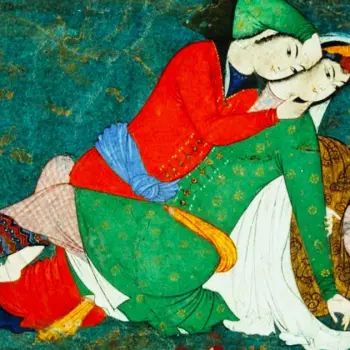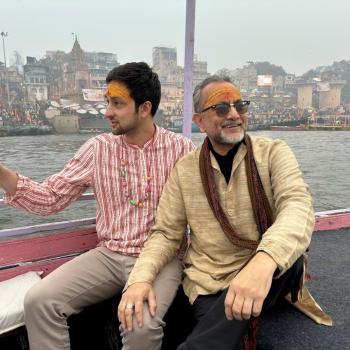 |
|
Christmas in Istanbul
|
I always get a chuckle from hearing the cries of the “war on Christmas” from some people in our country. They claim that there are forces that are actively trying to extract “Christ” out of Christmas, making it a secular holiday. They may point to the fact that many people choose to say “Happy Holidays” to their friends and neighbors, rather than “Merry Christmas,” out of political correctness. Yet, when someone tells me “Happy Holidays,” it also gives me a chuckle as well.
I know they mean well: they do not want to offend me if I am not Christian and do not celebrate Christmas. Yet, if a friend, colleague, or patient tells me “Merry Christmas,” I would not be offended in the least. I would deeply appreciate it, because that person is wishing that I have a happy day on December 25. It is a very nice gesture.
That is because, throughout my life, Christmas Day is quite boring for me. I do not celebrate Christmas as my Christian friends and neighbors do. Thus, there is basically nothing for me to do, although this year I am taking call, so that will help pass the time at least. Growing up, my parents would attend religious conferences during the Christmas holiday, but, I would rarely attend the lectures. I would rather have fun with my friends and cousins. But, the problem was there was nothing to do: almost every store and attraction was closed for Christmas.
Last year, I took overnight call duty on Christmas night, and I was looking for something to eat before my shift started: the city was a ghost town; not even the Dunkin Donuts or Chinese restaurants (previously my saving graces) were open! Thank God, the Muslim-owned business was open, and I was able to eat something before I started work. So, when someone wishes me a “Merry Christmas,” I am very happy.
Yet, even though I do not celebrate Christmas, that does not mean that I do not have Jesus in my life. Jesus Christ is very prominent in Islamic belief, and one cannot be a true Muslim if he or she does not love and believe in Jesus. He is mentioned more by name in the Quran than the Prophet Muhammad himself. There is an entire chapter of the Quran named after his mother the Virgin Mary.
The story of his birth is told twice in the Quran (3:42-47 and 19:16-33). In addition to the story of the birth, the Quran recounts how Jesus spoke in his infancy (3:46 and 19:29-33), healed the blind, those stricken with leprosy, and raised the dead back to life (5:110). The Quran even mentions that Jesus used to fashion birds out of clay and breathe life into them, all by the permission of God Almighty (3:49). In addition, the Quran recounts the story of what seems to be the Last Supper (5:112-116).
The Quran describes Jesus as being “honored in the world and the hereafter, and one of the intimates of God” (3:45) and “in the ranks of the righteous” (6:85). He is also described as “a word, from God, which God sent down to Mary, [and] a spirit from him” (4:171) and that Jesus was “strengthened with the Holy Spirit” (2:253, 5:110). Classical commentators have interpreted the “Holy Spirit” to mean either divine inspiration or the Angel Gabriel. Yet, with all this, Muslims still do not believe Jesus to be divine:
“People of Scripture [i.e., Christians], do not go into excess in your religion, and do not say anything about God but the truth. The Messiah Jesus, the Son of Mary, was only a messenger…” (4:171)
So, no one should worry about wishing me a “Merry Christmas,” because if their prayer is answered, Christmas Day will be a very good one for me. I am also very happy to wish my Christian friends and neighbors a hearty “Merry Christmas” as well, for, even though we see Jesus through different religious lenses, our love for Jesus is one. And it is my hope that this can bring Christians and Muslims together in our country and our world.
(Photo: Materials Aart via flickr under a Creative Commons license. This article was previously published at Middle East Online.)
Hesham A. Hassaballa is a Chicago physician and writer. He is the co-author of “The Beliefnet Guide to Islam,” published by Doubleday in 2006. His blog is called God, Faith, and a Pen.















